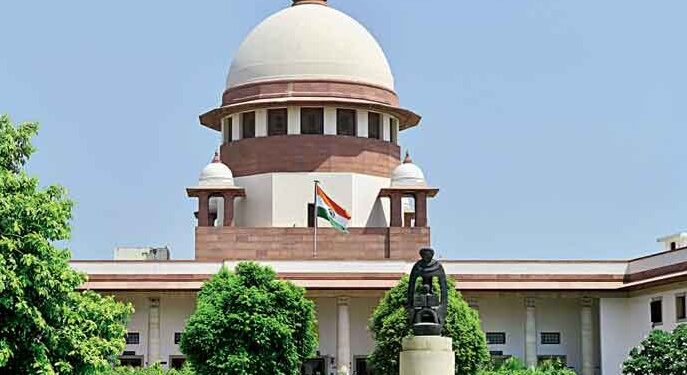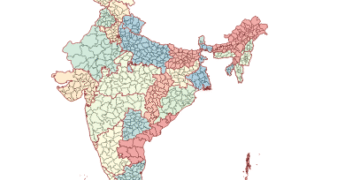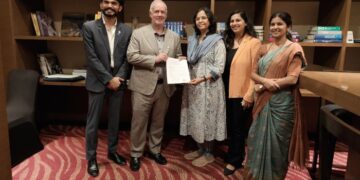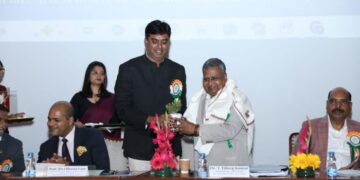On July 25, 2025, the Supreme Court of India delivered a pivotal judgment in Special Leave to Appeal (Crl.) No(s). 6378/2024 (Sukdeb Saha v. State of Andhra Pradesh & Ors.), setting forth 15 binding guidelines for educational institutions nationwide. Invoking Article 141, the Court declared:
“These guidelines shall be read as complementary to the ongoing work of the National Task Force and would inform and assist the National Task Force in the development of a more comprehensive and inclusive framework.”
The guidelines apply to all educational institutions across India, including:
- Public and private schools
- Colleges and universities
- Training centres and coaching institutes
- Residential academies and hostels
Justices Sandeep Mehta and Vikram Nath clarified that these directives do not supersede but supplement the ongoing initiatives of the National Task Force on Student Mental Health. They serve as an interim safeguard until a comprehensive framework is formalized.
The Guidelines are prescribed as under:
-
- All educational institutions shall adopt and implement a uniform mental health policy, drawing cues from the UMMEED Draft Guidelines, the MANODARPAN initiative, and the National Suicide Prevention Strategy. This policy shall be reviewed and updated annually and made publicly accessible on institutional websites and notice boards of the institutes.
- All educational institutions with 100 or more enrolled students shall appoint/engage at least one qualified counsellor, psychologist, or social worker with demonstrable training in child and adolescent mental health. Institutions with fewer students shall establish formal referral linkages with external mental health professionals.
- All educational institutions shall ensure optimal student-to-counsellor ratios. Dedicated mentors or counsellors shall be assigned to smaller batches of students, especially during examination periods and academic transitions, to provide consistent, informal, and confidential support.
- All educational institutions, more particularly the coaching institutes/centres, shall, as far as possible, refrain from engaging in batch segregation based on academic performance, public shaming, or assignment of academic targets disproportionate to students’ capacities.
- All educational institutions shall establish written protocols for immediate referral to mental health services, local hospitals, and suicide prevention helplines. Suicide helpline numbers, including Tele- MANAS and other national services, shall be prominently displayed in hostels, classrooms, common areas, and on websites in large and legible print.
- All teaching and non-teaching staff shall undergo mandatory training at least twice a year, conducted by certified mental health professionals, on psychological first-aid, identification of warning signs, response to self-harm, and referral mechanisms.
- All educational institutions shall ensure that all teaching, non-teaching, and administrative staff are adequately trained to engage with students from vulnerable and marginalised backgrounds in a sensitive, inclusive, and non-discriminatory manner. This shall include, but not be limited to, students belonging to Scheduled Castes (SC), Scheduled Tribes (ST), Other Backward Classes (OBC), Economically Weaker Sections (EWS), LGBTQ+ communities, students with disabilities, those in out-of-home care, and students affected by bereavement, trauma, or prior suicide attempts, or intersecting form of marginalisation.
- All educational institutions shall establish robust, confidential, and accessible mechanisms for the reporting, redressal, and prevention of incidents involving sexual assault, harassment, ragging, and bullying on the basis of caste, class, gender, sexual orientation, disability, religion, or ethnicity. Every such institution shall constitute an internal committee or designated authority empowered to take immediate action on complaints and provide psycho- social support to victims. Institutions shall also maintain zero tolerance for retaliatory actions against complainants or whistle-blowers. In all such cases, immediate referral to trained mental health professionals must be ensured, and the student’s safety, physical and psychological, shall be prioritised. Failure to take timely or adequate action in such cases, especially where such neglect contributes to a student’s self-harm or suicide, shall be treated as institutional culpability, making the administration liable to regulatory and legal consequences.
- All educational Institutions shall regularly organise sensitisation programmes (physical and/or online) for parents and guardians on student mental health. It shall be the duty of the institution to sensitise the parents and guardians to avoid placing undue academic pressure, to recognise signs of psychological distress, and to respond empathetically and supportively. Further, mental health literacy, emotional regulation, life skills education, and awareness of institutional support services shall be integrated into student orientation programmes and co-curricular activities.
- All educational institutions shall maintain anonymised records and prepare an annual report indicating the number of wellness interventions, student referrals, training sessions, and mental health-related activities. This report shall be submitted to the relevant regulatory authority, which may be the State Education Department, University Grants Commission (UGC), All India Council for Technical Education (AICTE), Central Board of Secondary Education (CBSE), or as otherwise indicated.
- All educational institutions shall prioritise extracurricular activities, including sports, arts, and personality development initiatives. Examination patterns shall be periodically reviewed to reduce academic burden and to cultivate a broader sense of identity among students beyond test scores and ranks.
- All educational institutions, including coaching centres and training institutes, shall provide regular, structured career counselling services for students and their parents or guardians. These sessions shall be conducted by qualified counsellors and shall aim to reduce unrealistic academic pressure, promote awareness of diverse academic and professional pathways, and assist students in making informed and interest-based career decisions. Institutions shall ensure that such counselling is inclusive, sensitive to socio-economic and psychological contexts, and does not reinforce narrow definitions of merit or success.
- All residential-based educational institutions, including hostel owners, wardens and caretakers, shall take proactive steps to ensure that campuses remain free from harassment, bullying, drugs, and other harmful substances, thereby ensuring a safe and healthy living and learning environment for all students.
- All residential-based institutions shall install tamper-proof ceiling fans or equivalent safety devices, and shall restrict access to rooftops, balconies, and other high-risk areas, in order to deter impulsive acts of self-harm.
- All coaching hubs, including but not limited to Jaipur, Kota, Sikar, Chennai, Hyderabad, Delhi, Mumbai, and other cities where students migrate in large numbers for competitive examination preparation, shall implement heightened mental health protections and preventive measures. These regions, having witnessed disproportionately high incidents of student suicides, require special attention. The concerned authorities, namely, the Department of Education, District Administration, and management of educational institutions, shall ensure the provision of regular career counselling for students and parents, regulation of academic pressure through structured academic planning, availability of continuous psychological support, and the establishment of institutional mechanisms for monitoring and accountability to safeguard student mental well-being.
The Court directed that all States and Union Territories shall, as far as practicable, notify rules within two months from the date of this judgment mandating registration, student protection norms, and grievance redressal mechanisms for all private coaching centres. These rules shall require compliance with the mental health safeguards prescribed herein.
“A district-level monitoring committee shall be constituted in each district under the chairpersonship of the District Magistrate or Collector. The committee may include representatives from the departments of education, health, and Child protection, civil society and shall oversee implementation, conduct inspections, and receive complaints,” said the judgement while issuing direction to the Union of India to file a compliance affidavit before this Court within a period of 90 days from the date of this judgment. The affidavit shall detail the steps taken to implement these guidelines, the coordination mechanisms established with State Governments, the status of regulatory rulemaking with respect to coaching centres, and the monitoring systems put in place.












